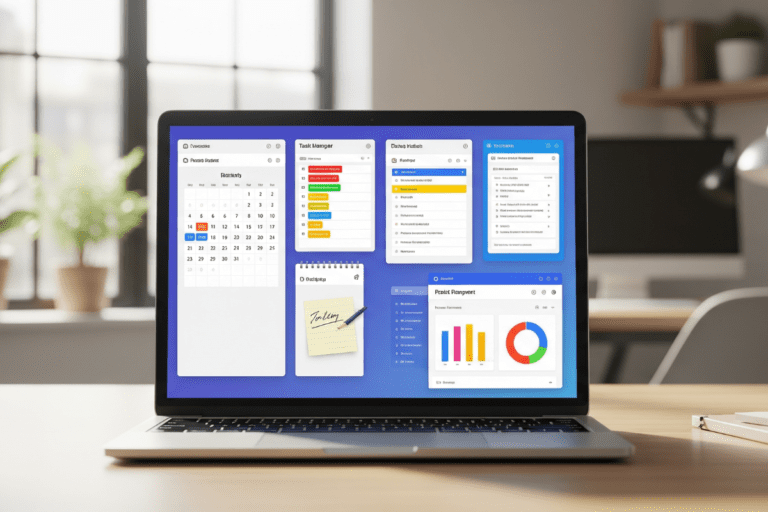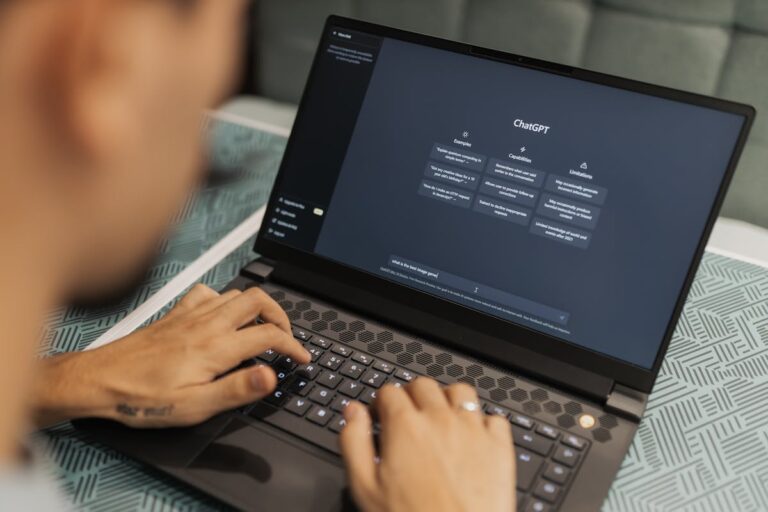Active Recall for Professionals: Learn Faster and Retain More
When was the last time you walked into a meeting and completely blanked on the key point you wanted to make? Or maybe you spent hours reviewing a report—only to realize the next day you barely remembered any of it. If you’re like most busy professionals, relying on passive review methods doesn’t cut it. That’s why active recall for professionals is becoming the go-to science-backed technique to learn faster and retain more.
This method isn’t just for students—it’s designed specifically to help entrepreneurs, freelancers, and managers retain critical information and perform better under pressure.
What Is Active Recall for Professionals?
Active recall is a learning technique rooted in cognitive science. It works by retrieving information from memory without looking at notes or source material.
It’s like strength training for your brain. Just as lifting weights builds muscle, recalling information builds durable memory pathways.
Even when you struggle or guess wrong, the act of recall strengthens learning more than passively reviewing the same material.
“Retrieval itself is a learning event.”
— Make It Stick: The Science of Successful Learning
Why Active Recall Matters for Professionals in High-Pressure Roles
In my own experience, active recall isn’t just a productivity hack—it’s a long-term advantage. Whether I’m preparing for client calls, building new skills, or reflecting on past conversations, using recall helps me learn better and faster.
Entrepreneurs
Use active recall to rehearse pitches, refine messaging, and internalize market insights—without always reading from notes.
Freelancers
Retain client preferences, project details, and communication cues so you can show up sharp and avoid repeat questions.
Managers & Team Leads
Remember key takeaways from 1:1s, track progress across multiple teams, and retain feedback details without digging through docs.
In fast-paced environments, memory isn’t optional—it’s a competitive edge.
Students
As a student, active recall is one of the most talked about methods of memorization (And for good reason. There are many ways that students can use active recall to remember what you’ve studied. For example you can write questions while taking notes, stop and summarize when reading a textbook, and utilize flashcards with apps like Anki.
5 Active Recall Techniques for Professionals to Learn Faster
1. Brain Dump After Meetings
Take 60 seconds after every meeting to write down everything you remember—before checking your notes. It sharpens your ability to listen, remember, and follow up more effectively.
2. Turn Notes into Questions
Instead of passively recording info, transform it into questions you’ll answer later.
- Note: “Weekly check-in scheduled for Mondays.”
- Question: “When is the team’s weekly check-in?”
I use Notion toggles and Anki cards to review these. It makes my learning much more active—and more permanent.
3. Pre-Call Recall
Before a client call or team sync, ask yourself:
- “What were the top 3 takeaways from the last meeting?”
- “What are the client’s main goals right now?”
This has helped me show up more prepared and engaged—without relying on notes every time.
4. Close-the-Tab Reading
When you finish reading a blog post or article, close the tab and write down 3 things you remember. This technique improves retention dramatically and helps separate fluff from insights.
5. End-of-Day Recall Reflection
Each evening, I quickly write:
- One new thing I learned
- One thing I want to remember tomorrow
- One conversation worth reflecting on
Doing this from memory (not notes) builds long-term retention—and helps wrap the day with focus.
The Science Behind Active Recall and Memory Retention for Professionals
- Stronger memory formation: Retrieval practice activates deeper cognitive processing.
- Fewer repetitions needed: You learn faster with less review time.
- Reveals what you don’t know: It’s easy to overestimate understanding—recall keeps you honest.
- Adaptable across skills: Whether you’re learning software, sales frameworks, or names—it applies universally.
How Professionals Build the Habit of Active Recall
- Start small: Choose one recall moment—after meetings, before calls, or at day’s end.
- Use tech tools: I recommend Anki, Notion, or Obsidian for building a lightweight recall system.
- Stay consistent: You don’t need perfect memory—just regular practice.
- Reflect weekly: Track what’s working, and refine your approach.
Final Thoughts on Using Active Recall for Professional Success
You don’t need more time to remember more.
You just need to interact with information differently.
Active recall for professionals is about thinking smarter—not studying harder. Start with one method. Learn to make it a habit, and use it daily. You’ll quickly notice how much more you retain, and how much faster you learn.
You’ll stop forgetting the important stuff.
And you’ll start thinking more clearly, confidently, and strategically—like a pro.







